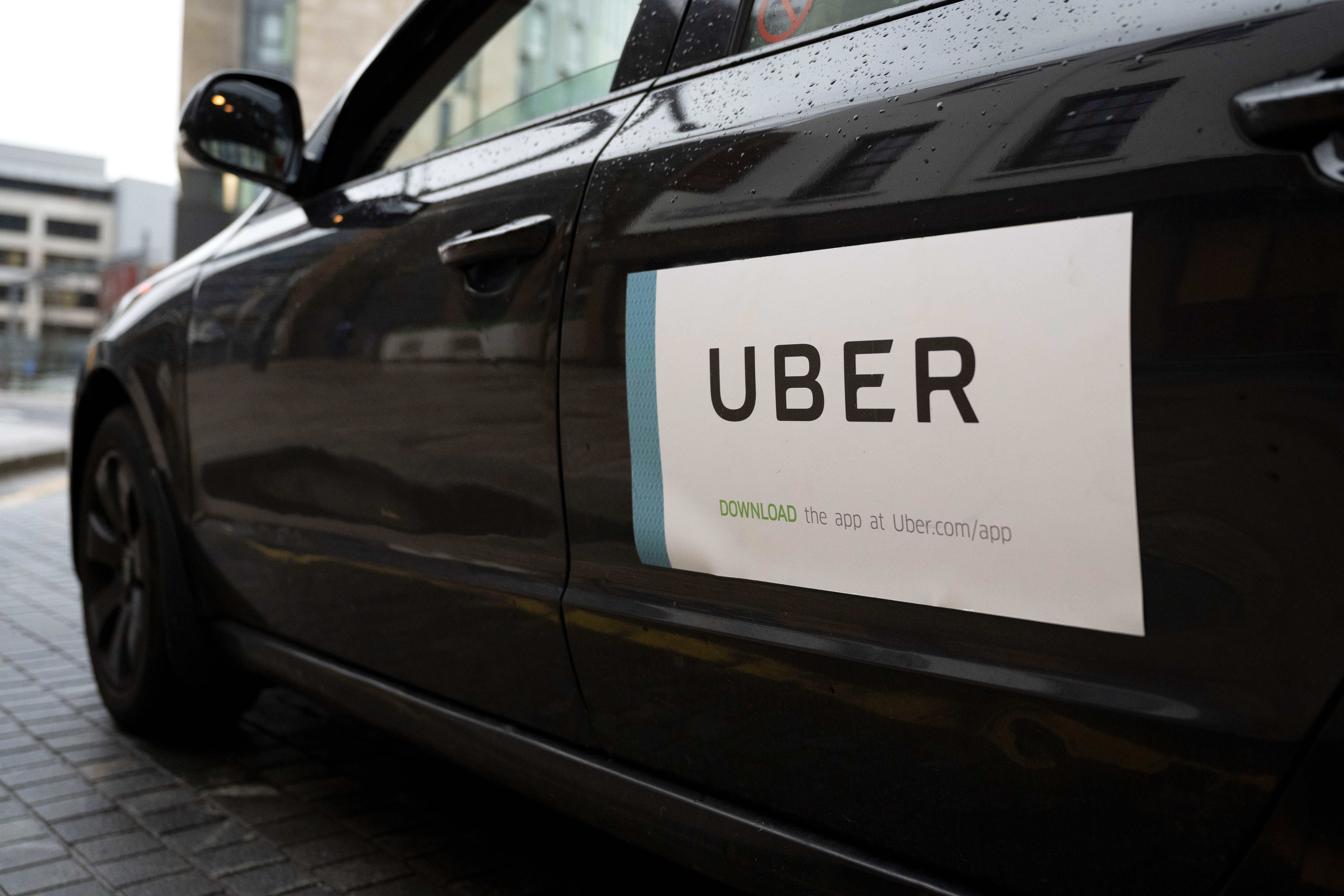‘More congestion, more pollution’: Clean air campaigners concerned about 20,000 more Ubers
Move will ‘endanger the health’ of people living in cities, activist says

Clean air campaigners have expressed dismay at Uber’s announcement that it will recruit 20,000 more drivers in the UK following a surge in demand since lockdown was eased.
The ride-hailing app said it has seen usage rise by 50 per cent since pubs and restaurants began to serve customers outdoors on 12 April.
Rosamund Kissi-Debrah, a clean air campaigner whose nine-year-old daughter Ella died in 2013 after suffering a series of severe asthma attacks, said the move appeared at odds with the government’s pledge to “build back greener”.
“I’m naturally going to be worried,” she told The Independent. “We’re not just talking five cars, are we – it’s 20,000 cars. That’s going to send congestion and pollution in the wrong direction,” she said, adding that air pollution has returned to pre-pandemic levels.
Following years of campaigning by Ms Kissi-Debrah, a coroner concluded last December that air pollution played a role in Ella’s death.
The campaigner also expressed concern that Uber’s plans would negatively affect less affluent people, saying: “This is obviously directed at a certain demographic – I don’t think it’s for poorer people. I can’t imagine they’re suddenly going to be getting Ubers everywhere.” Previous research has found that those most affected by poor air quality are disproportionately people living in deprived areas.
“If people were giving up their cars, and just using Uber when they needed a car, then that would make sense,” Ms Kissi-Debrah said, underlining that this doesn’t seem to be the case as London continues to be “gridlocked”.
She noted that the pandemic has set back the push to encourage people to give up their cars and embrace public transport. “The virus has made it incredibly difficult for the likes of me who want to see initiatives like car-sharing schemes,” she said.
She also raised the question of imposing a cap on companies like Uber, asking: “20,000 more cars? I mean, where does it end? In London, which is already gridlocked, how are they not going to add to the congestion?”
Turning to the often contentious subject of Low Traffic Neighbourhoods, Ms Kissi-Debrah said the scheme’s impact on London’s South Circular Road has been “horrendous”. “The roads that poisoned my daughter now have double the congestion. I will always be against any scheme that increases air pollution because of what happened to my daughter.”
Instead, the clean air advocate, who supports the congestion charges introduced by London’s Ultra Low Emission Zone, called for expanded funding of public transport, saying: “That would be the dream.”
Meanwhile, Jemima Hartshorn, the founder of the campaign group Mums for Lungs, warned Uber’s plans will “endanger the health of people” living in London and other cities.
“We’re in a pandemic so I understand that people are unsure about using public transport,” Ms Hartshorn said, while adding that she also acknowledged that some women feel unsafe walking alone. “However, we are in a respiratory pandemic – policy leaders and businesses need to pull together to ensure this is not a car-led recovery,” she said.
She said she was concerned that the decision would lead to “more congestion, more air pollution”, which will “endanger the health of people in London and other cities”.
The campaigner highlighted that people living in less affluent areas are often in the most polluted areas, while being less likely to own a car themselves. The move will hit poorer people harder as they are “more likely to rely on public transport”, she said, which will be affected by congestion on city roads.
“We need to push for better public transport,” the advocate underlined, adding that children are particularly vulnerable to particular pollution caused by cars.
In contrast, GMB, the union representing Uber drivers, applauded the move to hire more drivers now that the company has been forced to recognise them as employees rather than self-contractors.
Mick Rix, GMB national officer, said: “Uber is trying to signal the horrendous collapse of the private hire minicab sector brought about by the pandemic is coming to an end. Signing up another 20,000 drivers on top of the 70,000 already using the app is a positive indicator.
“Now Uber has committed to treating its workers fairly, granting them the rights to which they are legally entitled, this can only be good for the beleaguered private hire sector.”
Uber has been contacted for comment.
Join our commenting forum
Join thought-provoking conversations, follow other Independent readers and see their replies
Comments
Bookmark popover
Removed from bookmarks